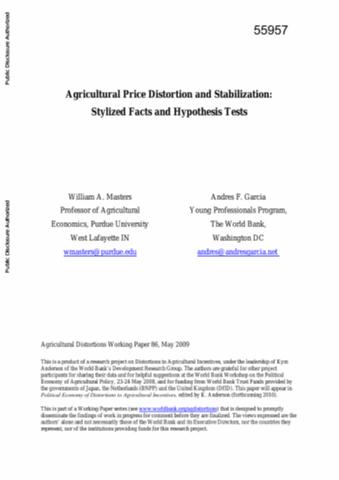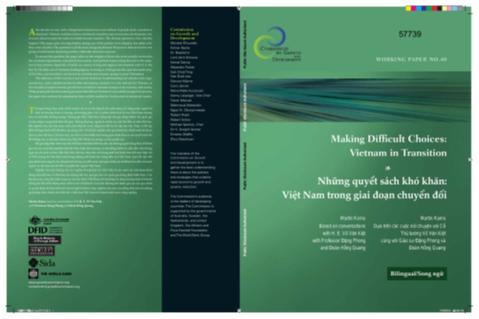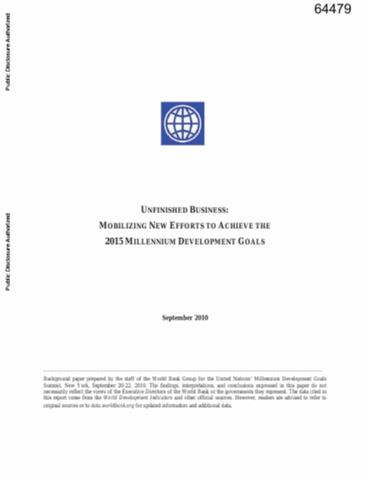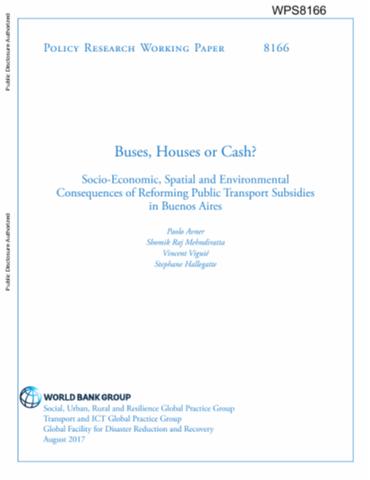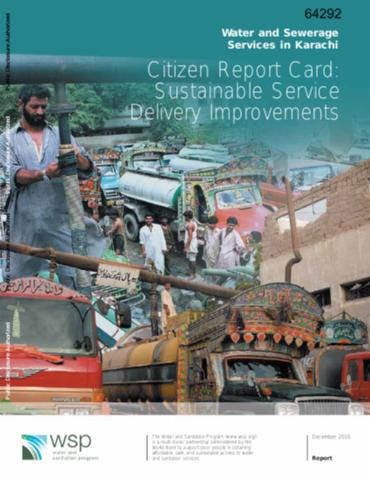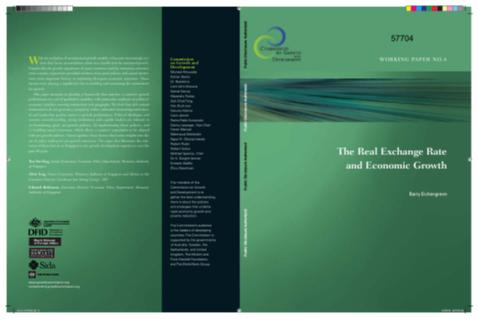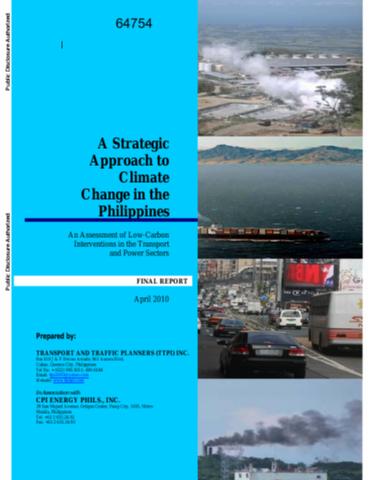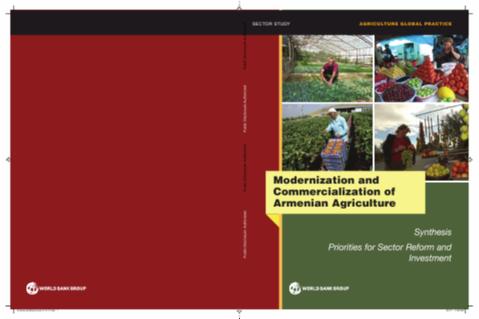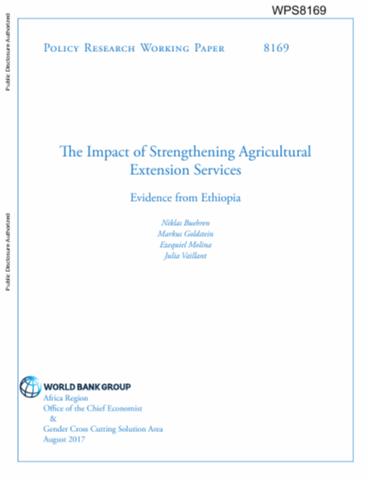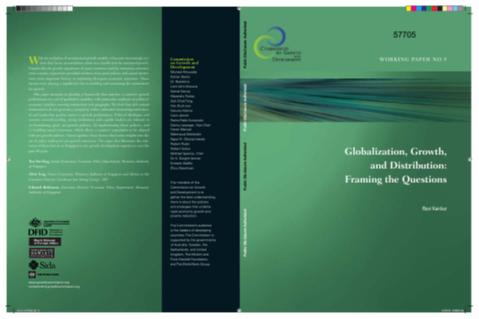
Topics and Regions
Details
Location
Contributions
Displaying 81 - 90 of 630Agricultural Price Distortion and Stabilization
This paper describes agricultural policy choices and tests some predictions of political economy theories. It begins with three broad stylized facts: governments tend to tax agriculture in poorer countries, and subsidize it in richer ones, tax both imports and exports more than nontradables and tax more and subsidize less where there is more land per capita.
Making Difficult Choices
After decades of war, with a dilapidated infrastructure and millions of people dead, wounded or displaced, Vietnam could have been considered a hopeless case in economic development. Yet, it is now about to enter the ranks of middle-income countries. The obvious question is: How did this happen? This paper goes one step further, asking not which policies were adopted, but rather why they were adopted. This question is all the more intriguing because the process did not involve one group of individuals displacing another within the structure of power.
Unfinished Business
Backed by sound economic policies and until the global crisis, a buoyant global economy, many developing countries made significant movement toward achieving the 2015millennium Development Goals (MDGs), particularly those for poverty reduction, gender parity in education, and reliable access to safe water. But even before the global economic crisis, progress in achieving some MDGs, especially those on child and maternal mortality, primary school completion, hunger, and sanitation, was lagging. The global food, fuel and economic crises have set back progress to the MDGs.
Buses, Houses or Cash?
Transit subsidies in the urban area of Buenos Aires are high, amounting to a total of US$5 billion for 2012. They have been challenged on several counts: suspected of driving urban sprawl and associated infrastructure costs, diverting resources from system maintenance, and failing to reach the poor among others. In this context, this paper examines the impacts of cost recovery fares under a range of different policy scenarios that could cushion the impact of fare increases.
Water and Sewerage Services in Karachi
This report discusses the key findings and recommendations emerging from a pilot Citizen Report Card (CRC) on water, sanitation, and sewerage services in Karachi. This initiative comes, on one hand, in the wake of deteriorating services, weakened community interfaces and accountability structures, poor revenue generation and dysfunctional governance structures and, on the other, an emergent consensus to bring in far-reaching institutional reforms that should move beyond financial and technical imperatives.
The Real Exchange Rate and Economic Growth
The real exchange rate was not at the center of the first generation of neoclassical growth models, nor was it prominent among the policy prescriptions that flowed from those models. Recent analyses, in contrast, have paid it more attention. This paper analyzes the role of the real exchange rate in the growth process, the channels through which the real exchange rate influences other variables, and policies useful (and not useful) for governing the real rate. An appendix provides econometric evidence supportive of the emphases in the text.
A Strategic Approach to Climate Change in the Philippines
Globally, the Philippines is a minor emitter of greenhouse gases (GHGs), but cost-effective mitigation present opportunities that should be captured, noting that the country is one of the signatory member states to the 1992 United Nations Framework Convention on Climate Change (UNFCCC) and its Kyoto Protocol. The country accounts for less than 0.3 percent of global GHG emissions in 2004.4 However, emissions are on the rise from both energy-use and land-use changes.
Modernization and Commercialization of Armenian Agriculture
The study focuses on themes and areas that have been identified as highly relevant for the modernization and commercialization of the agriculture sector. The study originally aimed to review: agricultural marketing, processing and exports; food safety; agricultural “cooperation,” including farmers’ groups; agricultural extension and agricultural insurance.
The Impact of Strengthening Agricultural Extension Services
This paper evaluates the effect of the Rural Capacity Building Project, which aimed at promoting growth by strengthening the agricultural service systems in Ethiopia and by making them more responsive to smallholders' needs. The project intended to increase the outreach of agricultural extension services to help farmers become aware of and adopt economically viable and environmentally sustainable technologies and practices. The paper examines the impact of the Rural Capacity Building Project using panel data on 1,485 geographically dispersed households in project and control kebeles.
Globalization, Growth, and Distribution
In the last two decades, across a range of countries high growth rates have reduced poverty but have been accompanied by rising inequality. This paper is motivated by this stylized fact, and by the strong distributional concerns that persist among populations and policy makers alike, despite the poverty reduction observed in official statistics where growth has been sufficiently high. This seeming disconnects frames the questions posed in this paper. Why the disconnect, and what to do about it?

